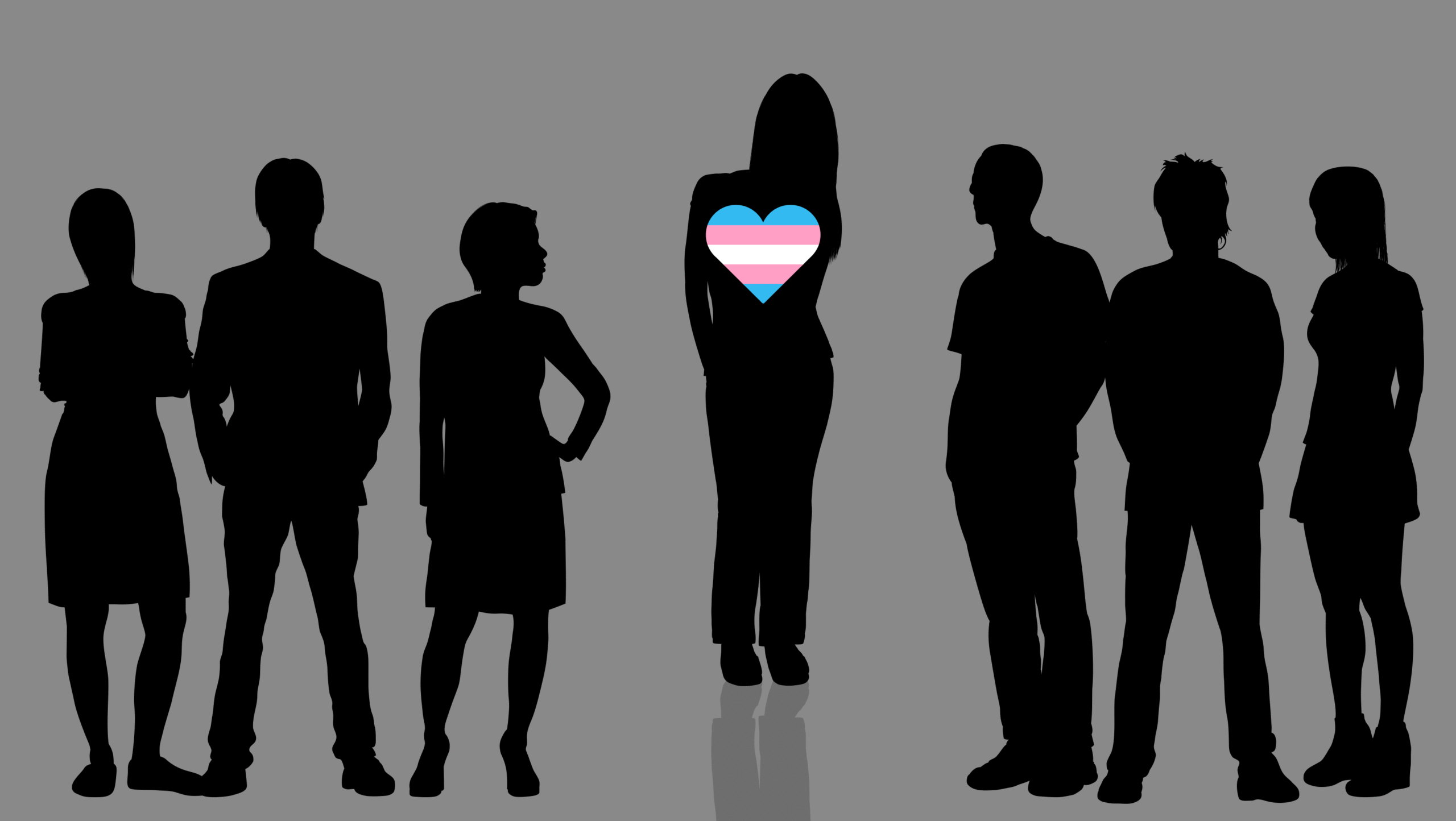This week, Vancouver city council put Vancouver Rape Relief (VRR) on notice that it would not be renewing a city grant after the end of the year, because of the non-profit’s ongoing policy to exclude transgender women from volunteering or using its counselling and support services. The grant, valued at $34,000, will end by 2020.
The decision came after years of debate and lobbying by the transgender community, legal scholars and sex workers, because VRR could not evolve beyond its 1970s roots and could not accept that trans women are women. And Vancouver’s decision has broader implications. The cancellation of funding and the backlash that follows demonstrates that our organizations must evolve with the times or risk their progressive credibility.
Vancouver councillor Sarah Kirby-Yung, who supported the decision, said, “I don’t want to live in a community that is not inclusive and rejects people especially if someone is going through trauma.”
For an organization — Canada’s oldest rape crisis centre — that grew out of the second-wave women’s movement, I’m sure it was strange for its staff and board to find themselves being defended and supported by white supremacist groups and religious fundamentalists with whom it shares its anti-trans values.
VRR found common ground with hate groups when it opposed the explicit protection of transgender people in the Canadian Human Rights Act and a section of the Criminal Code having to do with hate crimes: “We are worried that well-intentioned legislation will be used to undermine the rights of women and the crucial work of women’s groups to serve and organize with female-born women,” VRR said in its submission to the Senate committee considering Bill C-16, which protects gender identity and expression.
They were joined in opposition to the bill by University of Toronto professor Jordan Peterson, who gained notoriety for his refusal to use students’ pronouns, and the Justice Centre for Constitutional Freedoms, a Canadian right-wing legal advocacy organization.
The strangeness of these bedfellows struck me recently when I was dealing with a flare in anti-trans sentiment on Twitter. Twitter gives you the option to identify up to five other tweets from an account when making a report about objectionable content. About two-thirds of the accounts I reported, in my view, expressed Islamophobic and anti-migrant sentiments, and used language (“snowflake,” “political-correctness gone wild,” “affront to free speech”) that is associated with the far-right. These tended to use masculine or nonsense account names. The remaining third appeared to be accounts held by self-identified women, and used anti-trans rhetoric similar to the first group, but the accounts also made remarks about the seriousness of sex assault, the oppression of lesbian women, and other four-square feminist issues.
These days, it is more than just quaintly outmoded to conflate sex and gender in a way that invalidates the experience of transgender people, and to oversimplify sexual violence as an exclusively cis women’s issue. This vintage type of feminism also holds offensively paternalistic views about sex work most clearly articulated in VRR’s submission to the Supreme Court of Canada in the Canada (Attorney General) v. Bedford, 2013 SCC 72 — a case in which sex workers were seeking to overturn sections of the Criminal Code they said made life more dangerous for sex workers. VRR took the position that “prostitution” (the term they use instead of sex work) is inherently sexist and should be criminalized — a view often shared on the VRR-allied blog Feminist Current.
Statistically, survivors of sex assault are more likely to be trans women than cisgender women. According to figures cited by the Human Rights Campaign, 47 percent of American trans respondents reported being sexually assaulted. These figures increase for people of colour.
Luckily for survivors, only the propaganda wing of the organization has been clipped. The “education” program publicized VRR’s views about who counts as a woman in their view, and the dangers of sex work. Also lucky, and in my view too generous, is the grace period of one year VRR has been granted to adapt to the times. If they don’t, these services can be funded through one of the other rape crisis centres in the city — some of which share VRR’s roots, but have apologized to sex workers and changed their policies to be trans inclusive and intersectional.
Our Vancouver struggle is part of a greater global phenomenon. As trans people have become more visible and achieve more rights, those gains have been met by a rising backlash in the form of online harassment, anti-trans sentiment from politicians and the media and hate crimes.
This month the UK appointed its first national advisor for LGBTQ2 health, earmarking 20 million pounds to support LGBTQ2 rights globally (including a targeted program to address transphobic bullying in school and a gender recognition act).
Canada is evaluating government programs — including health policy, applications for federal documents and even how Canadians are addressed on the phone when they call a Service Canada agent — to make them more inclusive to LGBTQ2 folks (Randy Boissonnault, the special advisor on LGBTQ2 issues, has a report forthcoming). With Bill C-16, which passed in June 2017, gender identity and expression have been explicitly recognized as prohibited grounds for discrimination in human-rights legislation across the country. And in 2017 Prime Minister Justin Trudeau apologized to those who were fired from the public service and the Armed Forces for being queer.
At the same time, our neighbours to the south are taking steps to exclude trans people from military service. Russia is implementing anti-gay laws. The leaders of Brazil and the US issued a joint statement last year in defence of traditional family values. Homophobes, transphobes, white supremacists and anti-migrant xenophobes are being appointed to key political and policy posts around the globe. Sex assault is more prevalent among trans people. There has been a rush of trans asylum seekers from places in Latin America and the Middle East coming to sanctuary cities hoping to escape state-sanctioned and private violence.
In 2014, the Inter American Commission on Human Rights reported that the life expectancy of trans women in the Americas is between 30 and 35 years of age. Every year on Nov 20 we memorialize the hundreds of trans people who were murdered because of their gender identity and expression.
And added to this chorus of hateful voices stand VRR. In a tweet from March 20, the centre said that the “discontinuation of [the] grant to Vancouver Rape Relief shows trans activism is an attack on women.” It would be almost funny if it wasn’t so dangerous.
Discontinuation of grant to Vancouver Rape Relief shows trans activism is an attack on women #womenonly #womensliberation https://t.co/wfbeajp3Y2 via @FeministCurrent
— VancouverRapeRelief (@VanRapeRelief) March 21, 2019
It would be a betrayal, too, if second-wave, radical or respectable feminisms had ever been there for transgender people, sex workers, Black and Indigenous people and other people of colour in the first place. The #Metoo pussy hat doesn’t represent most of us, and International Women’s Day is a time to watch our cis-ters decry the glass ceiling while reinforcing the glass floor against us.
My community can take some comfort that at least this transphobia — be it far-right, religious fundamentalist or so-called “radical” feminist — is being challenged. At a recent convention of the BC Federation of Labour, the assembled delegates unanimously voted not to fund organizations like VRR that exclude transgender and non-binary people. Public sector unions celebrate our holidays, march with pride and develop important resources for their members like SOGI 123, and the Canadian Labour Congress’ Workers in Transition handbook.
The city council decision to ask VRR for accountability is part of this important movement for equality and recognition. Private and religious organizations can spread abhorrent values to people who volunteer to hear them, but they are not entitled to public funds to do so.
Individual donors, many of whom define themselves as feminists, should consider how the cause of addressing sexualized violence is improved by leaving transgender survivors outside on the doorstep — lest they be judged by the company they keep.
Adrienne Smith is a non-binary transgender person, and a Vancouver human rights lawyer. They use the gender-neutral pronouns they/them/their.


 Why you can trust Xtra
Why you can trust Xtra


